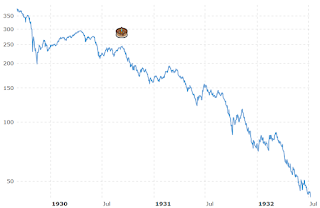バークシャー・ハサウェイのウォーレン・バフェットが、2/23(土)付けで2018年度の「バフェットからの手紙」を公開しています。拙訳付きで順次ご紹介するつもりですが、今年は一般向けの話題から取りあげます。例によって、米国に投資することの優位性を説いた話題です。
・
SHAREHOLDER LETTER 2018 [PDF] (Berkshire Hathaway)
米国に吹きつづける追い風
この3月11日をむかえると、わたしが米国企業にはじめて投資してから77年間が経ったことになります。あれは西暦1942年のことで、当時のわたしは11歳でした。6歳のときから貯め始めたお金114ドル75セントをつぎ込んで、シティーズ・サービス社の優先株を3株買いました。資本家になったことでうれしく感じたものです。
それではここで、わたしが株式をはじめて購入したその年から先立つこと、77年間の2周分をさかのぼってみます。西暦1788年、そこから話が始まります。ジョージ・ワシントンがこの国の初代大統領に就任する1年前になります。77年間という時代を三度くりかえすだけで、新たにうまれた国家がこれほどまでに発展するとは、当時のだれに想像できたでしょうか。
1942年に先立つ二度の77年間を経過する間に、4百万人の人口、すなわち全世界人口の1%のさらに半分ほどが暮らしていた米国は、世界で最も権勢を誇る国家へと成長しました。しかし1942年のあの春には、危機に直面していました。米国が3か月前に参戦した戦争のさなかで、ほかの連合国と同様に大打撃を被っていました。連日届くニュースは悪い知らせばかりでした。[過去記事]
しかし危急を告げる見出しがつづいても、3月11日時点でほぼすべてのアメリカ人が「この戦争には勝利する」と確信していました。その楽観的な見方は戦勝だけに限ったものではありませんでした。「現在の自分たちが手にしてきたよりもはるかにすぐれた生活を、子々孫々にわたって迎えられるだろう」と、根っからの悲観主義者は別として、アメリカ人は信じていたのです。
当然ですがこの国の人々は、行く手につづく道が平坦ではないことを覚悟していました。たしかに、そんなことは一度もありませんでした。米国史が始まってまもないころには、南北戦争という試練に直面しました。その内戦では全アメリカ人男子の4%が命を落とし、ひいてはリンカーン大統領が公の場で次のように問いかけることとなりました。「かほどの自由を創り出し、平等たらんと勤しむ人々の国家が、長きにわたって存続し得るだろうか」と。また大恐慌で苦しんだ1930年代は、失業者があふれかえった仮借なき時代でした。
それにもかかわらず、わたしが株式を購入した1942年の米国では、戦後における成長がすでに見込まれていました。そうなって然るべきだと信じられていました。この国がなしとげた発展をあらわすには、実のところ「傑出屈指」という言葉がぴったりなのかもしれません。
その証拠となる数字を当てはめてみましょう。もしも当時のわたしが114.75ドルの資金を、手数料不要のS&P500インデックス・ファンドに投資しており、受取配当金を全額再投資したとすれば、(本文書公開前の最新データが入手できる日付である)2019年1月31日現在のわたしの持ち分は、(税引き前で)60万6,811ドルへ成長したことになります。5,288倍に増えています。あるいはその当時に、年金基金や大学基金といった非課税の組織で100万ドルを投資していれば、約53億ドルに増加していたことになります。
もうひとつ計算を付け加えておきます。かならずや驚くと思いますよ。もし、そういった架空の組織がさまざまな「助力者」に対して、たとえば資産運用業者や投資顧問があげられますが、報酬として資産額のわずか1%相当を毎年支払ったとすれば、どうなったでしょうか。資産の増加幅は半減し、26億5千万ドルにとどまったことでしょう。S&P500が77年間にわたって年率11.8%の成長を実際につづけてきたなかで、その数字が10.8%へさがってしまうと、そのような結果を招いてしまうわけです。(PDFファイル12ページ目)
(つづく)
The American Tailwind
On March 11th, it will be 77 years since I first invested in an American business. The year was 1942, I was 11, and I went all in, investing $114.75 I had begun accumulating at age six. What I bought was three shares of Cities Service preferred stock. I had become a capitalist, and it felt good.
Let’s now travel back through the two 77-year periods that preceded my purchase. That leaves us starting in 1788, a year prior to George Washington’s installation as our first president. Could anyone then have imagined what their new country would accomplish in only three 77-year lifetimes?
During the two 77-year periods prior to 1942, the United States had grown from four million people – about 1⁄2 of 1% of the world’s population – into the most powerful country on earth. In that spring of 1942, though, it faced a crisis: The U.S. and its allies were suffering heavy losses in a war that we had entered only three months earlier. Bad news arrived daily.
Despite the alarming headlines, almost all Americans believed on that March 11th that the war would be won. Nor was their optimism limited to that victory. Leaving aside congenital pessimists, Americans believed that their children and generations beyond would live far better lives than they themselves had led.
The nation’s citizens understood, of course, that the road ahead would not be a smooth ride. It never had been. Early in its history our country was tested by a Civil War that killed 4% of all American males and led President Lincoln to openly ponder whether “a nation so conceived and so dedicated could long endure.” In the 1930s, America suffered through the Great Depression, a punishing period of massive unemployment.
Nevertheless, in 1942, when I made my purchase, the nation expected post-war growth, a belief that proved to be well-founded. In fact, the nation’s achievements can best be described as breathtaking.
Let’s put numbers to that claim: If my $114.75 had been invested in a no-fee S&P 500 index fund, and all dividends had been reinvested, my stake would have grown to be worth (pre-taxes) $606,811 on January 31, 2019 (the latest data available before the printing of this letter). That is a gain of 5,288 for 1. Meanwhile, a $1 million investment by a tax-free institution of that time – say, a pension fund or college endowment – would have grown to about $5.3 Billion.
Let me add one additional calculation that I believe will shock you: If that hypothetical institution had paid only 1% of assets annually to various “helpers,” such as investment managers and consultants, its gain would have been cut in half, to $2.65 billion. That’s what happens over 77 years when the 11.8% annual return actually achieved by the S&P 500 is recalculated at a 10.8% rate.
備考です。リンカーンが語った言葉の訳文は、以下のサイトを参考にしました。
・
ゲティスバーグ演説 (1863年)|About THE USA|アメリカンセンターJAPAN (米国大使館の広報・文化交流部)
















